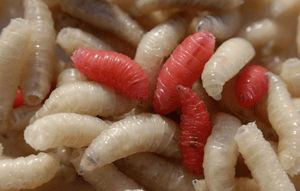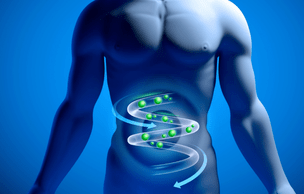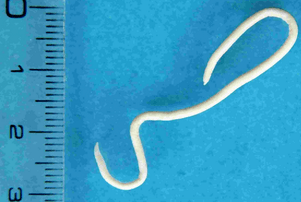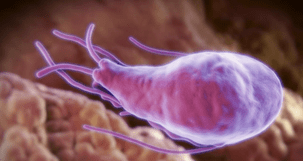It is difficult for an ordinary person to even imagine how many parasites can threaten his health. These "settlers" can live for years in the human body, literally sucking life out of it and poisoning with their venom.
Types of pests

From a medical point of view, parasites include monocytes and protozoa. Depending on their habitat, they are divided into exoparasites (lice, insects and others) and endoparasites.
Endoparasites have their own subspecies:
- Insect larvae.
- Protozoa (amoeba, lamblia).
- Helminths (worms or worms).
Routes of Infection
Each parasite has its own path of penetration into the human body. The most common way is nutritional, ie with the help of water or food. Many insects can carry pest larvae, polluting the environment. By consuming raw water, unwashed and not well cooked food, a person becomes infected with parasites.
Some items are transmitted directly from person to person - this route is called household contact. For infection, it is not necessary to have direct contact with the distributor, as long as you use household items. This is how enterobiasis and some other parasitic forms are transmitted.
An equally popular route of vector infection. In this case, the parasites are carried by insects that suck the blood. Thus, they can be taken after being bitten by a mosquito or other insect.
The last way the parasites enter is the transdermal pathway, the second name is active. Infection occurs through the penetration of larvae through the mucous membranes and skin. This is due to contact with contaminated soil or water in a body of water.
Symptoms
Parasites in the human body can live for a long time and not manifest. The symptoms, of course, will be, but disguised as other diseases. This is why a person for a long time may not know they have been infected.

Symptoms are more common depending on the location of the larvae, but the body can signal infection and other manifestations. The most common are:
- Flatulence,and stable, indicates the presence of worms in the small intestine.
- Diarrhea.Caused by parasite absorption of sodium chloride.
- Constipation.Tangled worms can clog certain organs.
- Pain in the joints and muscles.These pains are caused by the migration of larvae through the human body, to which the immune system reacts in this way.
- Allergy.The parasites themselves are an allergen to the body and damage to the stomach walls contributes to indigestion and the entry of food molecules into the bloodstream.
- The appearance of granulomas.This is a type of tumor that results from the lining of the body cells of damaged parasite eggs.
- Dermatological manifestations?
- Anemia.Often people suffer from anemia precisely because of the activity of parasitic forms.
- Sudden fluctuations in weight?
- Mental disorders.In the process of vital activity, parasites release toxins that adversely affect the host nervous system. The consequence of poisoning by the body can be nervousness, depression, anxiety.
- BruxismThis is the grinding of teeth during sleep. This is the response of the nervous system to the appearance of foreign bodies. But this fact is not conclusively proven by science.
- Sleep Disorder.As a rule, it happens due to unpleasant sensations. An example would be their worms here, which lay their eggs at night. Leaving the rectum, the pin secretes a toxin that causes severe itching
- Dysbacteriosis?
- Oncological diseases?
- Chronic fatigue.Occurs due to lack of nutrients, which adversely affects the condition of the body.
- Diseases of the respiratory system.Some parasites can live in the airways, causing disease. Other parasites cause colds by moving the respiratory system.
- Immune disorders.The absorption of most vitamins by parasites leads to a weakening of the body's barrier functions and a greater chance of developing diseases.
Disease Detection

Unfortunately, some doctors cancel their duties and do not send a person to special studies to detect parasites in the body. The most common analysis is the delivery of feces for worm eggs. The fact is that the parasites can live in different organs.
There have been cases where worms have been found in the human brain and eyes. Is it possible for their eggs to enter the feces from the brain? Probably not. Even if there are worms in the gut, the eggs of the parasites may not be found.
First of all, the doctor must visually examine the patient. Externally, one can suspect the presence of human parasites. The easiest way to detect them is to do a blood test to detect specific antibodies in the worms.
Description of human parasites
There are several dozen species of parasites that inhabit the human body.
Worms or helminths are a type of worm.Their size depends on the species, for example, female worms reach 40 cm. Some species are longer than 10 meters. A favorite habitat for worms is the intestines, but they are often found in other organs, even the brain.
For example, worm larvae circulate through the body, collecting nutrients and returning to the intestines, where they grow and reproduce. They often live in the respiratory organs. The presence of ascaris in the human body is accompanied by dysfunction of internal organs, poisoning of the body, allergic manifestations and even a rise in temperature.
Among the films is the pork film, which migrates to the brain through the blood. This parasite enters the body through abused meat products. This worm lives up to 20 years.
This parasite enters the body through abused meat products. This worm lives up to 20 years.
The second name of enterobiasis is the disease of dirty hands. All people who come in contact with the carrier are probably infected. Therefore, when pinworms are detected, treatment of the whole family is recommended.
The cell and the echinococcusinfect the body in many ways. Their danger lies in the fact that the larvae turn into cysts, which are located in various internal organs.
Giardia is the simplest.Like pinworms, Giardia is the most common infection in children. They not only reduce the child's immunity, but also cause a delay in the mental and physical development of children.
They not only reduce the child's immunity, but also cause a delay in the mental and physical development of children.
This list is far from complete. The main danger of parasites is that no one is immune to infection. Their secrecy leads to the fact that a person feeds on parasites for years without suspecting it. Adherence to personal hygiene, constant wet cleaning of homes and compliance with the rules of heat treatment of meat products are not bad prevention of contamination. It will be helpful to see a doctor and get tested as needed every six months to prevent the parasites from spreading.
















































